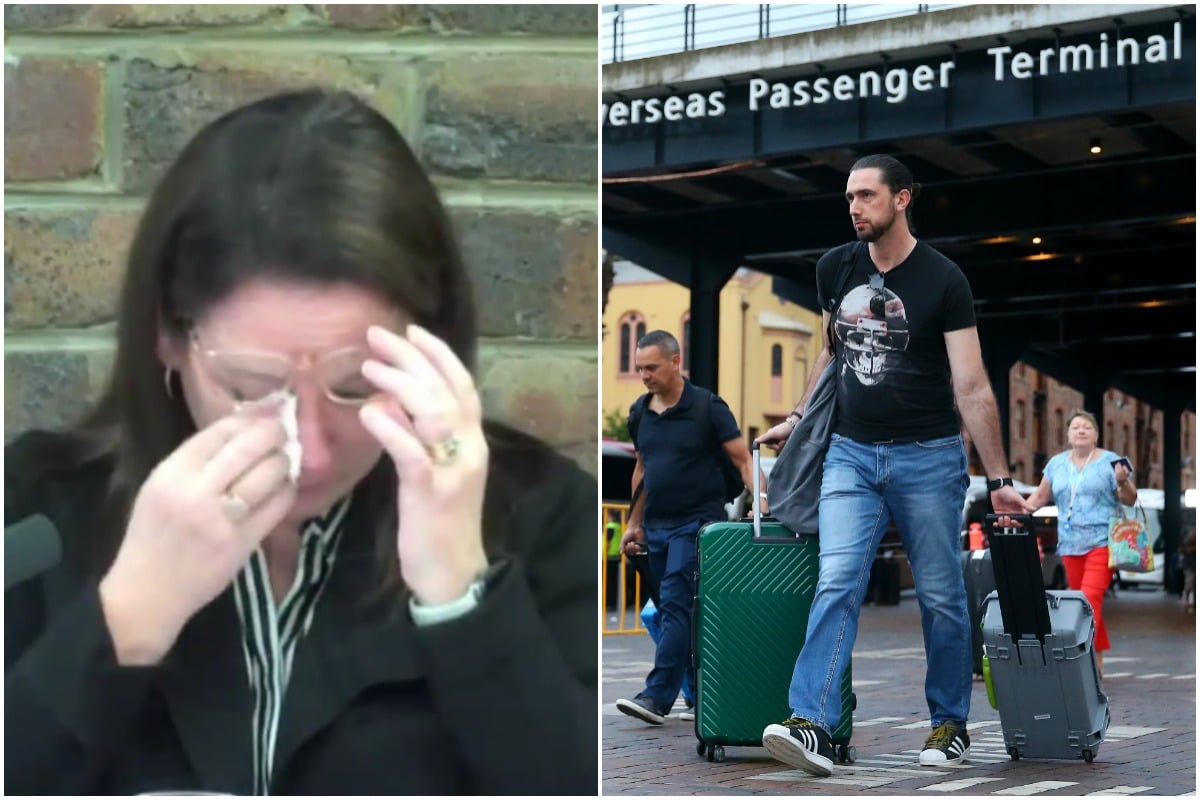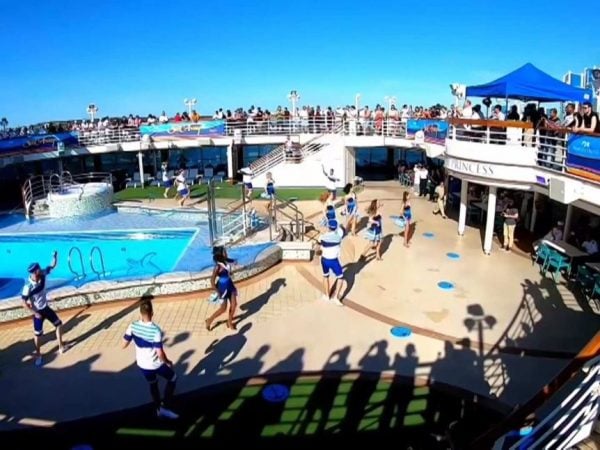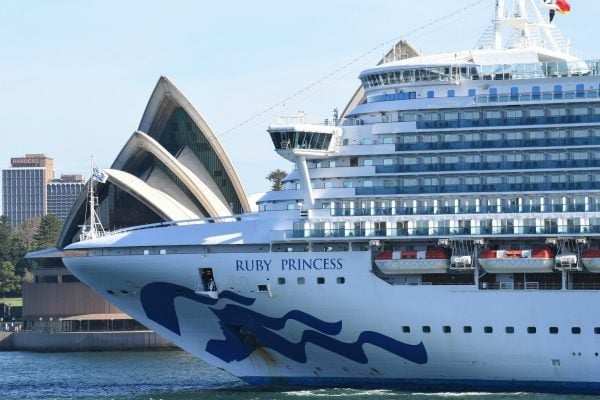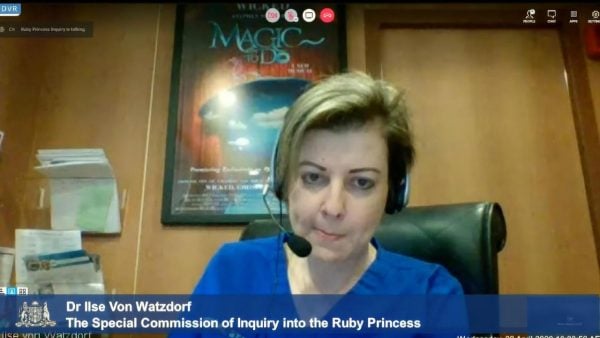
On March 19, a week before the World Health Organisation declared a global health pandemic, the Ruby Princess docked in Sydney and 2,700 passengers disembarked and went their separate ways.
Ever since, the ill-fated ship has dominated Australia’s coronavirus news coverage for the bungled handling and mistakes that have led to the deaths of 21 passengers, and the infection of more than 600 people.
Even though the country’s media has been following every step of the cruise liner disaster, new information continues to trickle out as a Special Commission of Inquiry is held into the Ruby Princess debacle in NSW.
WATCH: A party was held on deck on March 19, after passengers disembarked.
On ABC’s 7.30 last night, it was revealed that Ruby Princess crew held a party onboard after waving off the final passengers.
The “sail away” party would normally be reserved for passengers, but with the ship free of guests, the crew were treated to some fun and entertainment instead.
“A party without passengers never happens so it was amazing,” the ship’s fitness instructor Byron Sodani told 7.30.



